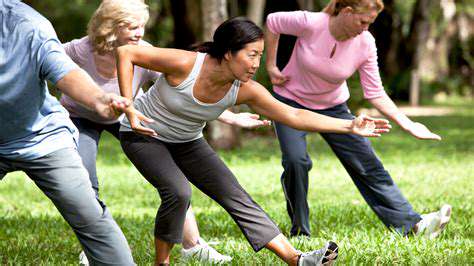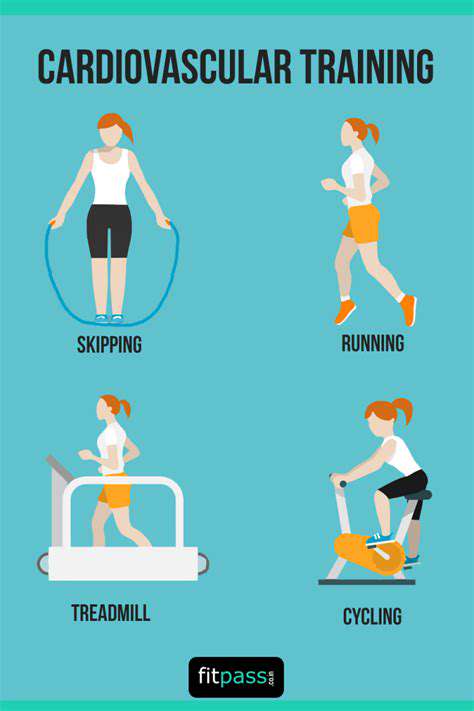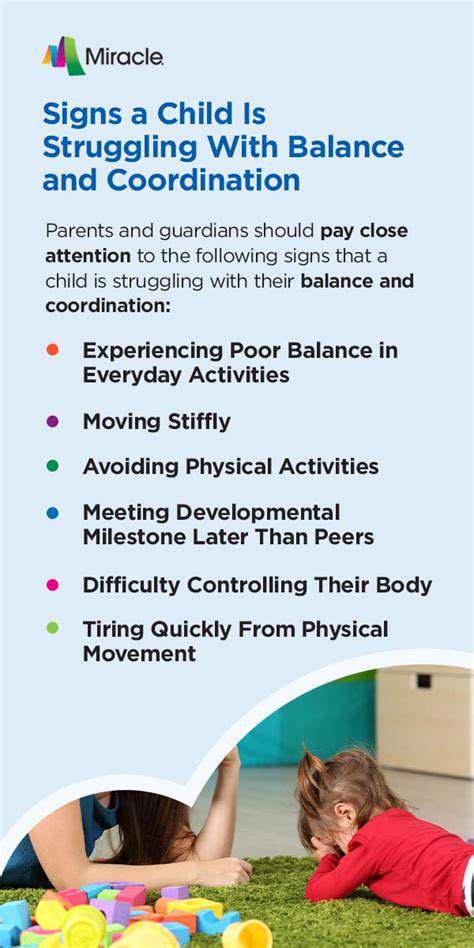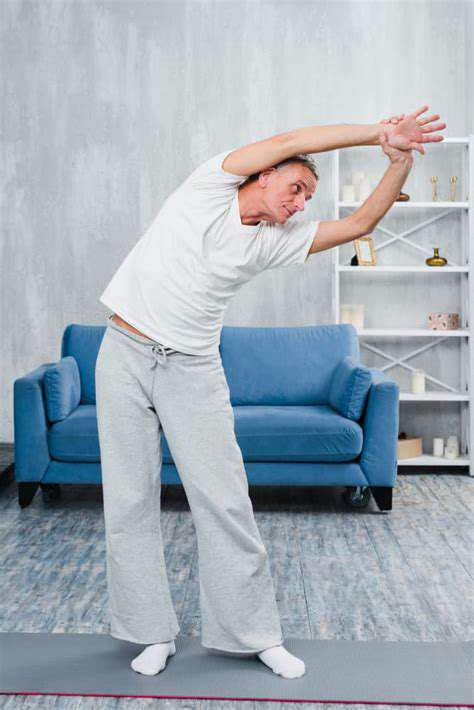Tai Chi for Fall Prevention: A Senior's Guide

Lifestyle Adjustments to Complement Tai Chi Practice
Nutrition and Tai Chi
Maintaining a balanced diet is crucial for overall health and can significantly enhance the benefits of Tai Chi practice. A diet rich in fruits, vegetables, whole grains, and lean proteins provides the essential nutrients needed for energy, muscle repair, and bone health. Prioritizing these food groups, while limiting processed foods, sugary drinks, and excessive saturated fats, can contribute to improved stamina and flexibility, both key aspects of effective Tai Chi practice and fall prevention.
Hydration is equally important. Drinking plenty of water throughout the day, especially before, during, and after Tai Chi sessions, helps maintain optimal bodily functions and supports muscle performance. Dehydration can lead to fatigue and reduced coordination, increasing the risk of falls.
Mindfulness and Tai Chi
Integrating mindfulness practices into your daily routine can significantly complement your Tai Chi practice. Mindfulness involves paying attention to the present moment without judgment. This focus can enhance body awareness during Tai Chi movements, improving posture, balance, and coordination. Regular mindfulness exercises, even simple ones like paying attention to your breath, can cultivate a sense of calm and awareness that is invaluable in preventing falls.
Sleep Hygiene and Tai Chi
Adequate sleep is essential for physical recovery and cognitive function. Getting enough quality sleep allows your body to repair tissues, strengthen muscles, and consolidate memories, which are essential for learning and performing Tai Chi movements safely. Establishing a consistent sleep schedule, creating a relaxing bedtime routine, and ensuring a conducive sleep environment can contribute to better sleep quality and, consequently, improved Tai Chi performance and fall prevention.
Exercise Beyond Tai Chi
While Tai Chi is a wonderful exercise, incorporating other forms of low-impact exercise into your routine can further enhance its benefits. Activities such as walking, swimming, or gentle stretching can improve cardiovascular health, strengthen muscles, and increase flexibility. This comprehensive approach to fitness can significantly reduce the risk of falls by improving overall physical function.
Consider incorporating strength training exercises, but always consult with a healthcare professional before starting any new exercise program. Focus on exercises that target core strength and lower body strength, as these are crucial for maintaining balance and stability.
Stress Management and Tai Chi
Stress can negatively impact physical health and increase the risk of falls. Chronic stress can weaken muscles, impair balance, and reduce reaction time. Incorporating stress-reducing techniques, such as meditation, deep breathing exercises, or yoga, can help manage stress levels and create a more supportive environment for Tai Chi practice.
Social Connection and Tai Chi
Engaging in social activities can provide emotional support and motivation, which are essential for maintaining a healthy lifestyle. Joining a Tai Chi group or class can foster a sense of community and provide opportunities for social interaction. This support network can encourage adherence to the practice and motivate individuals to maintain a consistent routine, reducing the risk of falls.
Environmental Modifications for Safety
Creating a safe environment at home is equally important in fall prevention. Removing tripping hazards, such as loose rugs or cords, and ensuring adequate lighting, especially in hallways and stairwells, can significantly reduce the risk of falls. Using assistive devices like grab bars in bathrooms and ramps can further enhance safety and promote independence. Adapting your home environment to create a safer space can be a critical aspect of fall prevention, especially when combined with the benefits of Tai Chi practice.











